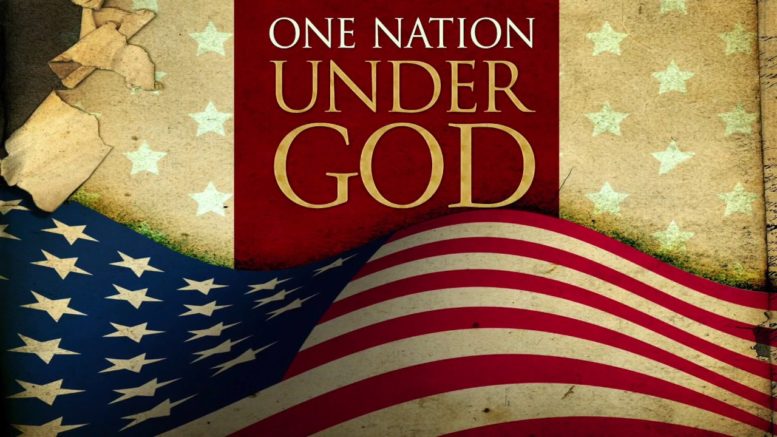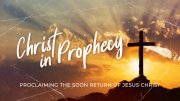What is truth? The dictionary says it’s conforming to facts or reality. But today, that definition just leads to asking who’s facts and reality. It doesn’t help very much, and that is a big problem. Philosophy and theology are disciplines that both search for truth. This article looks at philosophy’s roots, and some differences between the two disciplines, in identifying our next principle. This voyage influences the education, morality, and virtue discussed in prior articles.
Philosophy
Man’s possesses an inborn desire for truth. This led to his searching for the ultimate source of all things. Greek philosophers referred to this source as first cause.
Beyond the Greeks
When talking philosophy, we often think of Greek philosophy. But is that correct? According to Clement of Alexandria (second century AD), that answer is no. Thales, the first of the seven sages, was born in the 7th century BC. It would be another two hundred years before philosophy produced the likes of Plato and Aristotle. Where did these men’s knowledge come from?
Clement asserts Greek philosophy had its roots in either Indian or Egyptian thought (what he termed Barbarians) or the Hebrew Tanakh (Bible Old Testament).[1] He cites Moses living in the 16th century BC, and the Tanakh being put into its current form in the middle of the 6th century BC during the Babylonian exile from documents far older. This exile occurred roughly during the lives of Thales and Pythagoras.
Clement states many of the great philosophers were not Greek. Examples include Pythagoras as a Tuscan or Tyrian who learned from Egyptians, Chaldeans, and Magi; Orpheus as an Odrysian or Thracian; Homer an Egyptian; and Thales as a Phoenician influenced by Egyptians. Also, philosophy’s use of symbols, enigmas, and allegories in referring to first principle is similar to that found in the Tanakh. He connects some writings from Pythagoras, Homer, and other philosophers to it.
This is significant as the Tanakh developed first, especially the first five books referred to as the Torah. The relationship is so plain the philosopher Numenius said, “For what is Plato, but Moses speaking Attic Greek.” Plato did travel to Egypt. It is interesting that only about fifty years after his death, Ptolemy I created the Library of Alexandria and a little latter Hebrew scholars translated the Tanakh into Greek in this city.
Philosophy’s Usefulness …
Make no mistake, while Plato understood the Hebrew writings, his beliefs were pagan. But his writings came closer to Christian ideas than any other pagan philosopher. Clement used those to identify the differences between pagan and Christian thought.
And it was not just the differences that mattered. Augustine suggested that philosophy prepared Man for understanding God more fully. “Perhaps this may be said of the best disciples of Plato—of those who followed most closely and understood most clearly the teachings of a master rightly esteemed above all other pagan philosophers—that they have perceived, at least, these truths about God: that in Him is to be found the cause of all being, the reason of all thinking, the rule of all living. The first of these truths belongs to natural, the second to rational, the third to moral philosophy.”[2]
Theology is the study of religion. The tools developed by disciplines like philosophy are useful in studying the things of God. Pagan philosophy largely dealt with Man’s purpose and relationship to others. It prepared one for understanding the things of God within the Bible and theology. Philosophy developed skills such as logic, rhetoric, discernment, and critical thinking. Its goal of building virtue is also important, although its pagan definition is false. Discernment is at the heart of our Christian purpose; learning to tell good from evil. This understanding has implications for how we choose to live. Philosophy helps us understand and apply God’s truth.
… And Corruption
When using philosophical arguments in talking with church leaders, they sometimes attempt to negate the argument by simply stating philosophy is corrupt. Only the Bible provides answers. Yes, it provides the answers, but not necessarily the understanding for applying them. Those come from the types of skills philosophy intends to build. Their application assists in building virtue. Both are needed.
This line of thought leads to a place where one may know the Bible, but be unable to understand or apply it. And if their argument was true then why were some of Christianity’s greatest theologians—such as Clement and Augustine—originally pagan philosophy teachers before converting to Christianity? Their search for truth led them to Christianity. It is no different today.
The Renaissance
There is, however, corruption within philosophy—and theology today as well. This has nothing to do with the tools, but rather what is taught and its misuse. Take critical theory and cultural Marxism in all their forms. They are antithetical to both God and the Bible.[3] We see their effects on display through the covid insanity, election fraud, social justice injustice, division perpetrated by Black Lives Matter and the like, and liberation theology.
This shift in thought became prominent during the Renaissance; with the writings of those like Machiavelli, Spinoza, and Hobbes. Their influence is still felt today. These writers shifted focus onto the ends alone, with little regards for the means of getting there. We’ve moved from searching for God’s truth to simply looking for Man’s. Reason alone became sufficient, but man’s reason is also corrupt. It requires outside guidance to stay on course. That guidance comes from God alone. Both reason and faith are therefore necessary. From Clement,
The exercise of faith directly becomes knowledge, reposing on a sure foundation. Knowledge, accordingly, is defined by the sons of the philosophers as a habit, which cannot be overthrown by reason. Is there any other true condition such as this, except piety, of which alone the Word is teacher? I think not.[4]
Neither is knowledge without faith, or faith without knowledge.
Implication
When we accept God, He becomes our king and heaven our country. We are also to be a single people—His people. Fulfilling this requires recognizing a single set of rights and shared commitment to the common good. [5] Moral relativism does not work because it does not come from God. It is placing faith in Man rather than God, and based on positive rights rather than His negative rights and responsibilities. Moral relativism creates division rather than unity, because it only contains man’s ‘truth.’ A truth that is at best partial and only preparation for the real thing.
Truth is usually simple—even when its application is not. This creates a consistency not found within man’s truth alone. Augustine noted this and said,
But let us … return to the philosophers from whom we digressed to these things. They seem to have labored in their studies for no other end than to find out how to live in a way proper for laying hold of blessedness. Why, then, have the disciples dissented from their masters, and the fellow-disciples from one another? … Now, although there might be among them a desire of glory … yet I may grant that there were some … whose love of truth severed them from their teachers or fellow-disciples, that they might strive for what they thought was the truth, whether it was so or not. But what can human misery do, or how or where can it reach forth, so as to attain blessedness, if divine authority does not lead it? Finally, let our authors, among whom the canon of the sacred books is fixed and bounded, be far from disagreeing in any respect.[6]
Corruption
In the end we must each ask who we serve and our purpose. We are now ready for our next principle.
Biblical societies strive to understand and attain God’s truth.
Footnotes:
[1] Wolf, Dan, pp. 30-8, The Light & The Rod: Why Biblical Governance Works, Living Rightly Publications, 2020.
[2] Walsh, Gerald G. et al, City of God, pp. 149-50, Doubleday Publishing, 1958. Book VIII, Chapter 4.
[3] See series beginning with Wolf, Dan, Critical Theory Idolatry, Virginia Christian Alliance, 9/24/20. https://vachristian.org/critical-theory-idolatry/.
[4] Roberts, Alexander, Rev. and Donaldson, James, p. 307, The Ante-Nicene Fathers, Fathers of the Second Century: Hermas, Tatian, Athenagora, Theophilus, and Clement of Alexandria (Entire), Wm. B. Eerdmans Publishing Co., 1989. Stromata Book I, Chapter VI.
[5] Wolf, Dan, The Man of Great Wealth, Virginia Christian Alliance, 4/19/21. https://vachristian.org/the-man-of-great-wealth/.
[6] Schaff, Philip, Nicene and Post-Nicene Fathers, Vol. 2, Augustin: City of God, Christian Doctrine, p. 384, Wm. B. Eerdmans Publishing Company, 1989, XVIII, 41.



